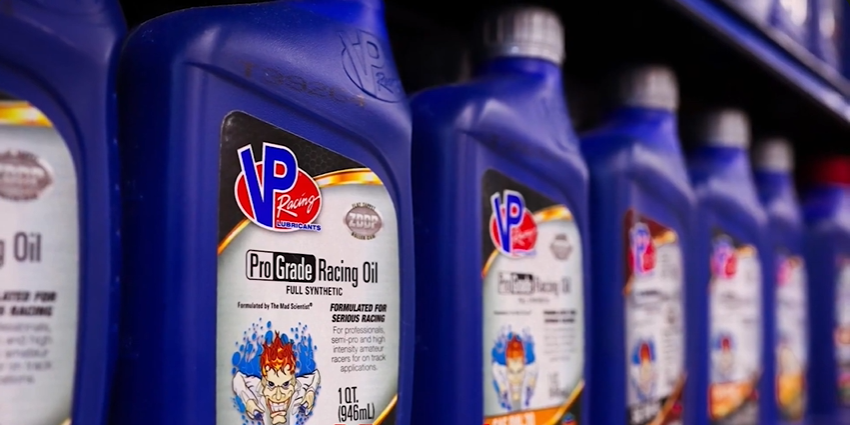No, you should not mix synthetic oil with regular oil. The two oils are not compatible and could cause engine damage.
If you’re thinking about mixing synthetic oil with regular oil, there are a few things you should know. First, synthetic oil is designed to last longer and protect your engine better than regular oil. It can also help your engine run more efficiently.
However, mixing synthetic and regular oil can actually decrease the life of your engine’s oil system. That’s because the different properties in each type of oil can break down and degrade over time, which can lead to deposits and sludge build-up. So, if you’re going to mix synthetic and regular oil, be sure to do it at the right ratio and change your oil more frequently than usual.
Does It Matter If You Mix Synthetic Oil With Regular Oil?
Synthetic oil is a man-made lubricant that is designed to provide better protection for car engines than conventional, or “regular,” motor oil. Synthetic oil is also said to last longer and perform better in extreme temperatures than regular oil. So, does it matter if you mix synthetic oil with regular oil?
The answer is yes…and no. Generally speaking, mixing synthetic and regular oils will not cause any harm to your engine. In fact, many mechanics recommend doing this if you are looking to extend the life of your car’s engine.
The reason for this is that synthetic oil typically contains more additives and compounds than regular oil, which can help protect your engine from wear and tear.
However, there are some exceptions to this rule. If your car’s engine has been specifically designed to run on synthetic oil, then you should not mix in any regular oil.
Doing so could void your warranty or cause other problems down the line. Additionally, some experts caution against mixing different brands of synthetic oils together as this could also lead to problems. So if you do decide to mix synthetic and regular oils, be sure to use the same brand of each type of oil.
Will Mixing Synthetic And Regular Oil Damage the Engine?
Mixing synthetic and regular oil will not damage your engine. The two oils are compatible with each other and will work just fine in your engine.
Is It Bad to Mix Conventional And Synthetic Blend Oil?
-No, it is not bad to mix conventional and synthetic blend oil. In fact, doing so can actually extend the life of your engine oil. The two types of oil share many of the same properties, but synthetic oil is designed to withstand higher temperatures and stressors than conventional oil.

By combining the two, you get the best of both worlds – protection against wear and tear as well as enhanced performance. Just be sure to check your owner’s manual for recommendations on how to do this properly.
Will Synthetic Motor Oil Mix With Regular Conventional Oil?
Why can’t You Go Back to Regular Oil After Synthetic
If you’ve ever used synthetic oil in your car, you know that it’s a bit of a splurge. The price per quart is almost double that of regular oil, but the benefits are supposed to be worth it. Your car will run smoother and cooler, and the oil will last longer between changes.
So what happens if you switch back to regular oil after using synthetic? The short answer is: nothing bad. In fact, switching back to regular oil after using synthetic is perfectly fine.
Your car won’t suffer any ill effects, and you’ll still enjoy the benefits of synthetic oil for a while before needing to change your oil again. Here’s the thing: when you use synthetic oil, the molecules are smaller than those in regular oil. That means they can more easily get into all the nooks and crannies of your engine, providing better protection overall.
But those small molecules also mean that your engine will be able to hold onto synthetic oil for longer periods of time without breaking down or becoming diluted. So even though you’re switching back to regular oil, your engine will still be protected by the leftover synthetic molecules clinging to its surfaces. You might not get quite as much mileage out of each oil change as you would with pure synthetic oil, but you’ll still be able to go longer between changes than if you’d never used synthetic in the first place.
What Happens When You Mix Synthetic And Conventional Oil
If you’ve ever wondered what would happen if you mixed synthetic and conventional oil, you’re not alone. It’s a common question with a bit of a complicated answer. Here’s what you need to know about mixing synthetic and conventional oil.
First, it’s important to understand that there are two different types of oil – synthetic and conventional. Synthetic oil is man-made, while conventional oil is derived from crude oil that comes from the ground. Both have their own benefits and drawbacks.
So, what happens if you mix the two? Generally speaking, it’s not recommended to mix synthetic and conventional oil. The reason for this is that they have different properties, which can cause problems down the line.
For example, synthetic oil has a higher viscosity than conventional oil. This means that it will flow less easily when cold, which could potentially lead to engine damage. Additionally, mixing the two types of oils can throw off your car’s computer system.
Most modern cars are designed to run on either type of oil, but they’re optimized for one or the other. Mixing the two can confuse your car’s computer system and potentially cause problems.
Can I Put Synthetic Oil in My Car After Using Regular Oil
If you’re wondering whether you can put synthetic oil in your car after using regular oil, the answer is yes! Synthetic oil is designed to be compatible with all types of engines, including those that have previously used regular oil.
There are a few things to keep in mind when making the switch from regular to synthetic oil.
First, synthetic oil has a higher viscosity than regular oil, so it may take a little bit longer for it to reach all of the engine’s moving parts. Second, be sure to check your owner’s manual for the recommended type and weight of oil for your specific vehicle.
Overall, making the switch from regular to synthetic oil is a simple process and one that can provide many benefits for your car.
Synthetic oil provides superior protection against wear and tear, helps improve fuel economy, and keeps your engine running smoother and quieter. So if you’re looking for an upgrade in engine performance and protection, switching to synthetic oil is definitely worth considering!
Can You Mix Synthetic Oil With Regular Oil in a Lawn Mower
It’s a common question: can you mix synthetic oil with regular oil in a lawn mower? The quick answer is yes, you can mix synthetic and regular oils in most cases. However, there are a few things to keep in mind before doing so.
First, check your lawn mower’s owner’s manual. Some manufacturers void the warranty if you don’t use the recommended type of oil. If your manual doesn’t say anything about mixing oils, it’s probably safe to assume that the manufacturer doesn’t have a problem with it.
Second, remember that synthetic oil is designed to last longer than regular oil. As such, you may not need to change it as often as you would regular oil. This could be important if you have a fixed schedule for changing your lawn mower’s oil (such as every 50 hours of use).
In this case, it might be best to stick with one type of oil or the other so that you don’t end up over-extending the interval between changes. Finally, keep in mind that mixing oils may slightly reduce the overall quality of each. Synthetic oil is typically higher quality than regular oil, so mixing them may result in a lower-quality mixture than either would be on its own.
This likely won’t have any significant impact on your lawn mower’s performance, but it is something to keep in mind.
Conclusion
If you’re wondering whether you should mix synthetic oil with regular oil, the answer is no. Synthetic oil is actually designed to be used on its own and doesn’t need to be mixed with anything else. In fact, mixing synthetic oil with regular oil can actually decrease the performance of your engine.
So if you’re using synthetic oil, make sure to use it on its own and not mix it with regular oil.




Leave a Reply